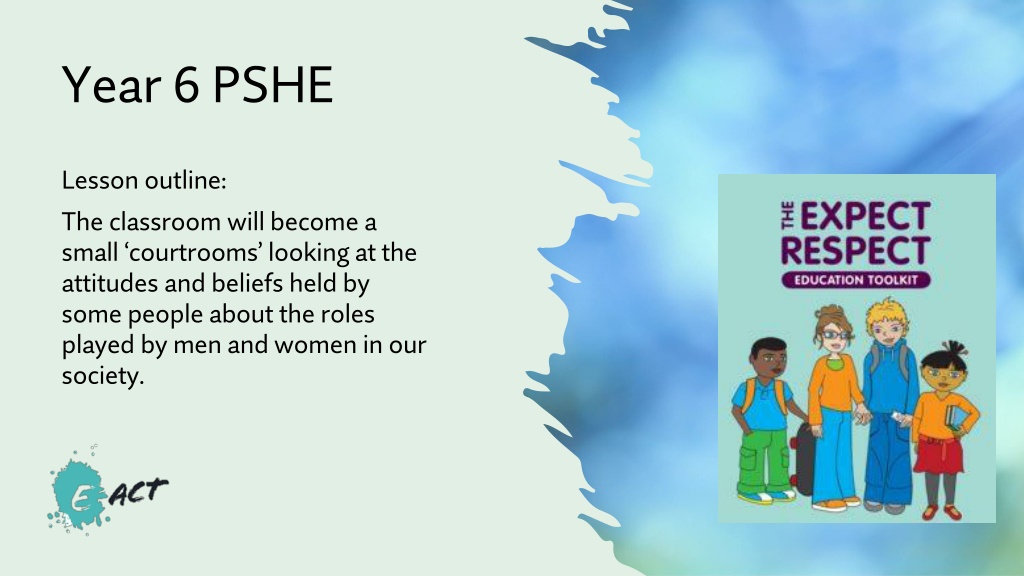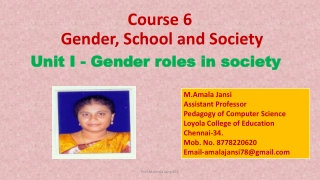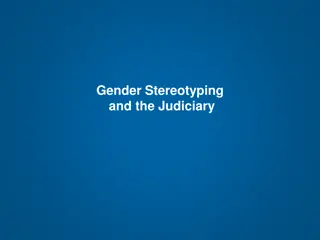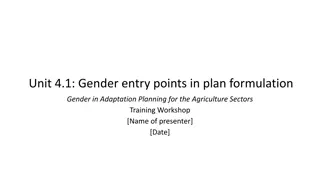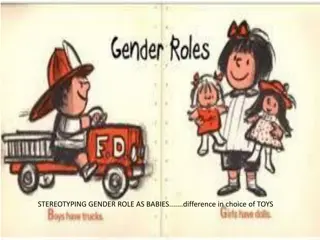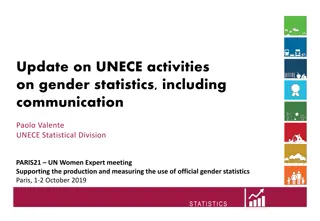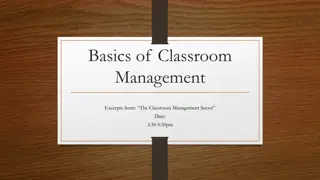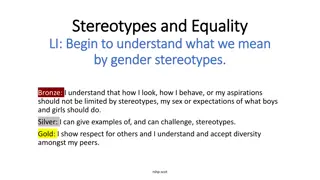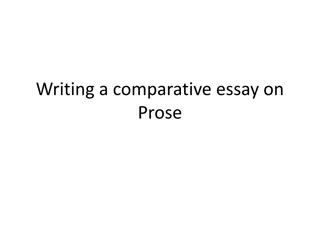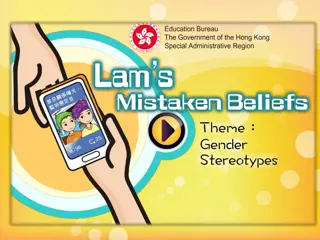Exploring Gender Stereotypes in a Classroom Courtroom Setting
The Year 6 PSHE lesson involves transforming the classroom into small courtrooms to investigate attitudes and beliefs regarding gender roles in society. Students will engage in activities simulating courtroom roles, challenge stereotypes, and learn to argue against incorrect ideas. The lesson aims to foster critical thinking and awareness of the impact of gender stereotypes.
Download Presentation

Please find below an Image/Link to download the presentation.
The content on the website is provided AS IS for your information and personal use only. It may not be sold, licensed, or shared on other websites without obtaining consent from the author. Download presentation by click this link. If you encounter any issues during the download, it is possible that the publisher has removed the file from their server.
E N D
Presentation Transcript
Year 6 PSHE Lesson outline: The classroom will become a small courtrooms looking at the attitudes and beliefs held by some people about the roles played by men and women in our society.
Learning Outcomes By the end of this lesson: All children will be able to think about the impact of gender stereotypes; Most children will be able to think about some of the assumptions underlying stereotypical views of male and female behaviour and how these stereotypes affect them and their own reactions; Some children will be able to understand that such stereotypes can be challenged and that they can take responsibility for arguing against ideas which seem to them to be wrong, even if this is not the majority opinion.
1. Who's who in a courtroom? (Discuss) Judge Prosecuting lawyers Defending lawyers The jury Resources: https://www.youtube.com/w atch?v=TUvG2CzXfc0 (first 2 minutes)
1. Who's who in a courtroom? (Answers) Judge (who sums up arguments, keeps order and passes sentences) Prosecuting lawyers who argue against the defendant Defending lawyers who argue in favour of the defendant The jury who are twelve members of the public who must make the final decision.
2. Courtroom game Look at the statement above. First names beginning A-K (team A) are arguing for the statement First names beginning L-Z (team B) are arguing against each statement. Pupils must stick to their teams even if this means arguing for something they do not believe.
2. Courtroom game In class discussion: The teams write down as many points as they can to support their argument. The teacher acts as the judge and listens to the arguments from the two teams. The judge makes the final decision. Virtual school: Write down as many points as you can to support your argument. Now flip roles and join the opposite team. Write down as many ideas to support this opposing argument. Looking at both sides, you now act as the judge and decide which side wins.
Statements There are a selection of statements on the next slide. Write down whether you are for or against each statement and give 2 reasons for your decision that will convince a judge.
Remember There are some things which are not just a matter of opinion but are totally unacceptable or against the law. There are some opinions which can not be accepted and need to be challenged.
End discussion 1. Was there anything that you found surprising or shocking today? 2. How do you feel personally about some of these statements? 3. Which of the statements did you agree most with (if any)? 4. Which did you disagree most with? Why? 5. Write down one thing you found out today which surprised you, or that you didn t know before.
Extension activities 1. Use the Women s Aid website https://thehideout.org.uk/ to produce a poster raising awareness of domestic abuse. 2. Write a news bulletin about domestic violence.
Where can I get help and support? Talk to any grown up you trust Your academy- staff, website
